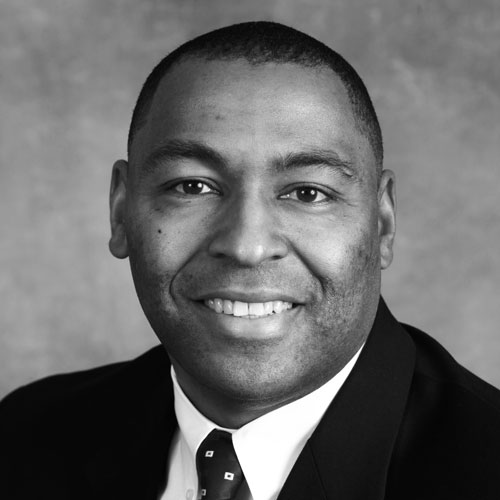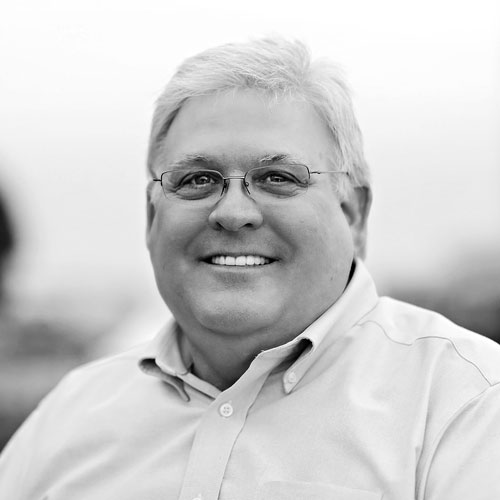Dennis Kitchen knows the value of strong mentorship. Over a twenty-three-year career in the manufacturing business, he’s had great leaders showing him the way, and now as vice president of human resources for BWAY, he is paying it forward. “My favorite thing about my job is being able to develop people,” he says. “I really get a lot of excitement around hiring people, working with them, and seeing them grow in their careers. To see young talent come into an organization and prosper is extremely gratifying.”

BWAY manufactures and distributes metal containers such as aerosol cans, paint cans, steel pails, specialty boxes, and more. Kitchen oversees union and non-union plants, deals with compensation issues, benefits, and a wellness program, and manages talent development, succession planning, people strategy, and employee relations.
His role requires strategic thinking around human resources, but Kitchen says his main challenge is driving the organization by adding strategic value. “Many people believe that HR operates in black and white, but I find that most of the lanes that I operate in, HR’s function is to be the conscience of the organization,” Kitchen says. “Sometimes we are quick to say ‘no’ and that’s the wrong philosophy. The goal should be, how do we get to ‘yes’? Our job is to work with the organization and get the job done.”
Yet Kitchen wasn’t looking for a career in human resources. In fact, he earned a degree from Northern Illinois University in industrial technology and spent the first few years of his career working as an engineer. “My view of the world was that I would be a plant manager or something in operations,” he says.
Instead, the international truck and engine manufacturer Navistar recruited him as a production supervisor. While working there, Kitchen discovered that he excelled at managing employee relations. “It was heavily unionized, and you learn how to get things done,” he says. “I learned how to supervise and manage people.”
As a part of the grievance procedure team, he got involved in union negotiating and realized it was something he enjoyed. He applied for a job in human resources at Navistar, and that’s where he had his first taste of training, employee development, and recruiting. “I found that I really enjoyed it. It got me interacting more with people, and I liked the training aspect of it. I liked the recruiting aspect, and I liked the labor relations part of it,” he says. “It also helped that I had a very strong technical background because people respected it as I moved further and further into HR.”
Kitchen spent the next thirteen years at BorgWarner, a supplier of motor vehicle parts and systems, where he developed human resources strategies, facilitated startup operations, manufactured transfers, and led employee wellness programs.
But when BWAY offered him a nice breadth of responsibility and experience, he couldn’t pass it up. “It offered me an opportunity to take an organization that really didn’t have a strong strategic HR and take it from a highly administrative role to a more strategic role,” Kitchen says. “When I came in 2010, HR wasn’t looked at as a critical partner in the company and they wanted to change that view.”
OFF THE CLOCK WITH DENNIS KITCHEN
BWAY’s vice president of human resources, Dennis Kitchen, spends his free time restoring two vintage Volkswagen Beetles.
“I have an uncle who owned one, and whenever I would go and spend time with him, he would show me the inner workings—I found it fascinating,” Kitchen says. “I always knew that whenever I got to the point that I could afford one, I would buy one.”
In 2002, Kitchen found his dream car on eBay, checked books out of the library to learn how to restore the car. He’s had the bug ever since. Kitchen later added a ‘72 convertible to his collection.
Initially, Kitchen did an assessment of the human resources function at the company and discovered roles weren’t clearly defined, new resources were needed, and more talent to fit the culture was of chief concern—whether there was an opening or not. “For example, I’m now recruiting engineers from the University of Michigan, and I’m searching for certain types of behaviors, and even if I don’t have an opening, I’m going to bring these types of people into the organization so I can built talent,” he says. “The end game of all of this is to put together a clear HR strategy.”
One of Kitchen’s most noteworthy achievements is the development of strategy around a three-year plan toward a consumer-driven healthcare plan. “When I came in, one of the issues is that they had not looked at our benefit program for probably around ten years,” he says. “I set out to achieve five objectives that I believed would get us on the right path.”
Those objectives involved looking at whether or not the company was offering the right benefit structure, ensuring there was flexibility in the program, shifting away from employees having 100 percent responsibility to a shared wellness strategy, decreasing the number of different programs offered, and controlling costs. But looming in the background of all of this was the US Affordable Care Act.
Starting in 2012, BWAY went from three plans to two and added a health savings account to the mix. It also added a spousal premium, health risk assessment, and biometric screenings as it started to market its healthcare program, B-Well. “The whole idea was that if we started now, the B-Well program would get people to think about getting healthier,” Kitchen says. “You have to start setting a foundation to where we want to go as a company.”
Over the next few years, BWAY narrowed to one plan and instituted tools to encourage a healthier workforce, such as a smoker’s surcharge and incentives for walking a certain amount of steps a month. He rolled out the plan to his team of twenty-nine employees in the human resources department as well as the company’s 5,200 employees across twenty-three locations in North America.
To maintain this improved momentum, Kitchen remains focused on getting the right people that fit with the culture of BWAY. A big challenge he faces pertains to millennial job seekers who generally do not show interest in the manufacturing field, according to Kitchen. So, it’s sometimes difficult to recruit people for BWAY’s plants, which Kitchen says is not typically viewed as a glamorous activity.
Yet Kitchen points to the deeper purpose of the industry to engage potential recruits. “When we go to recruiting fairs, we focus a lot around our products. These are things everyone uses,” he says. “One the surface, the job might not sound too interesting, but there are a lot of products that people are very familiar with, and we show young people the multiple opportunities in manufacturing.”
The secret to developing new leaders, Kitchen says, is to give them different assignments and provide as many different opportunities in the organization as possible. “Even if they fail, or determine an opportunity isn’t for them, I see every opportunity as a learning experience. They are building their toolbox as they move up,” he says. “I look at how to get results through people and not be deterred by failure. My advice is to look at every situation as a unique one and take what it gives you and move on from there.”

